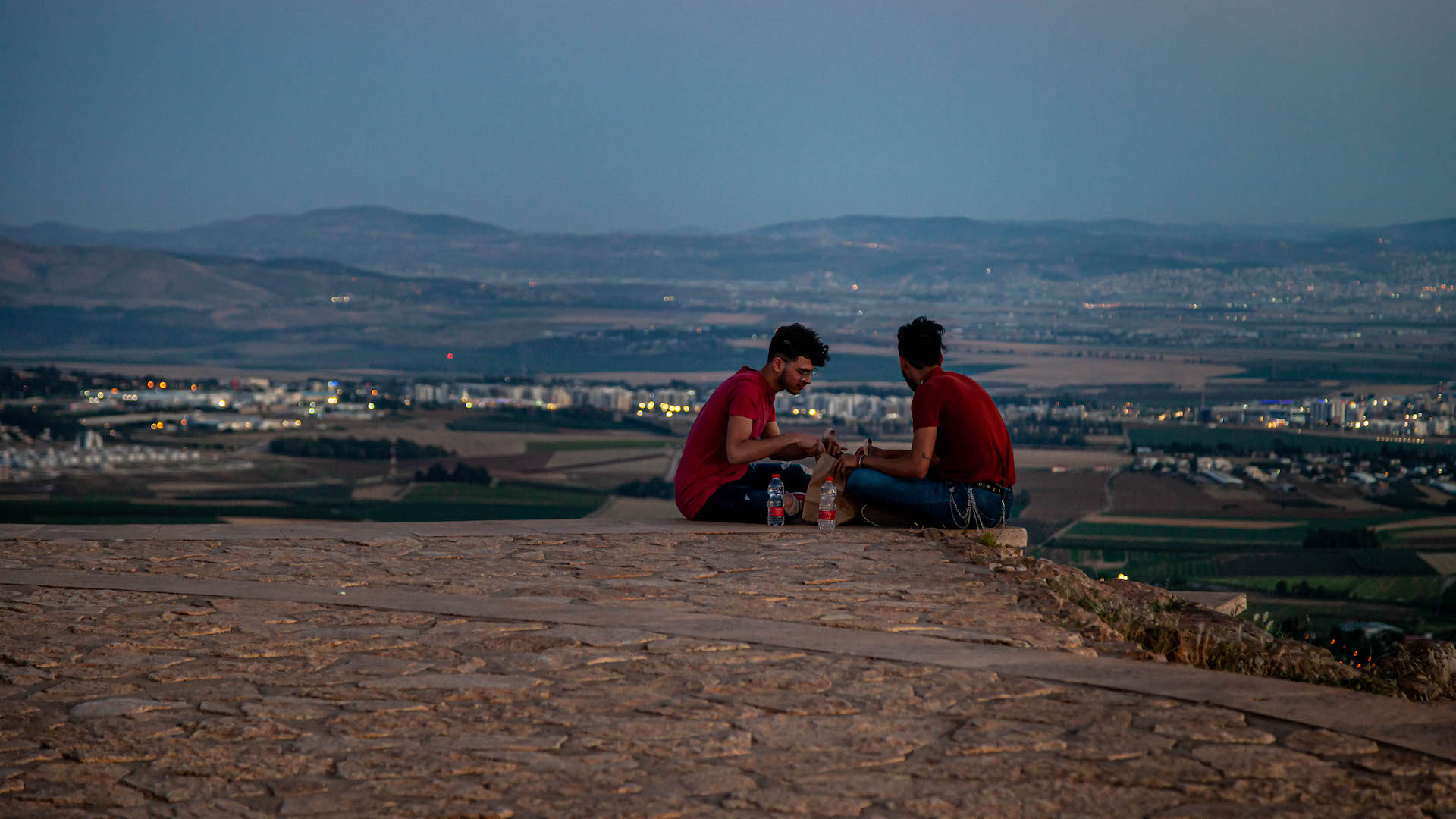
A canon explodes, its boom reverberating across Old City Jerusalem as the sun fades into the horizon. It startles, but not as an omen of violence. Rather, it’s a sign of relief. The daily Ramadan fast is over, and for the thousands of Muslims who live in Israel, it’s time to eat.
Ramadan, the Islamic holy month of fasting, requires fasting during daylight hours from food, water, and carnal pleasures like smoking and intercourse. Millions of Muslims around the world keep the fast, but even secular Muslims who don’t will join their family and friends for the Ramadan evening meal called iftar.
In Israel, this year’s start of Ramadan began after a peace truce ended clashes at the Gaza border. Unlike other locations around the world where masses of people emerge in the cool of the evening to eat and celebrate, the mood among many Muslims in Israel was largely subdued.
Here are some recent scenes from Israel during the first week of Ramadan.
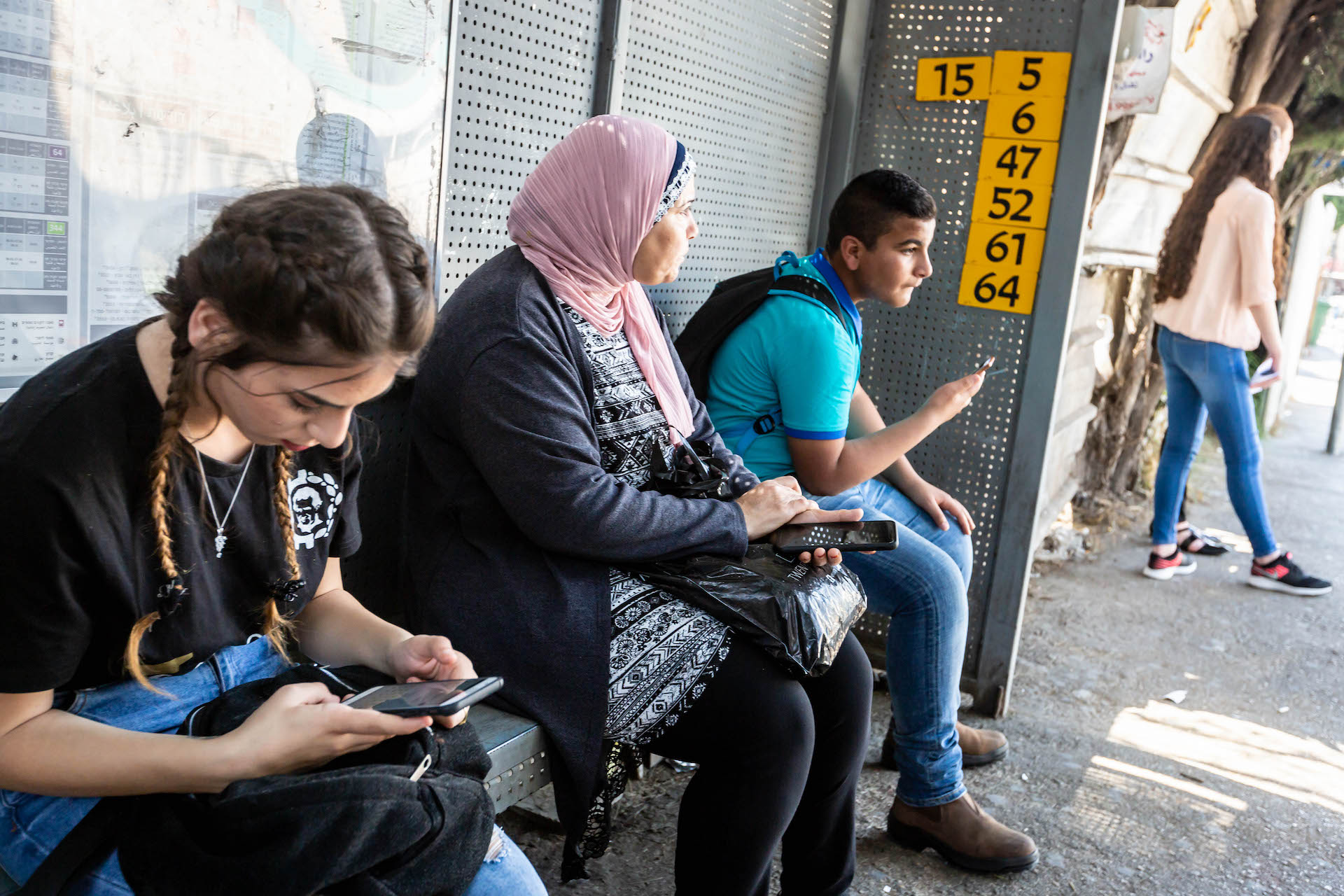
Known as Israel’s “Arab Capital,” Nazareth is home to mostly Muslim Arabs. The tiny village, completely insignificant in first-century Israel, is now a bustling city. The city’s majority Muslim population lives and works alongside a Christian-Arab minority who practice Orthodoxy.
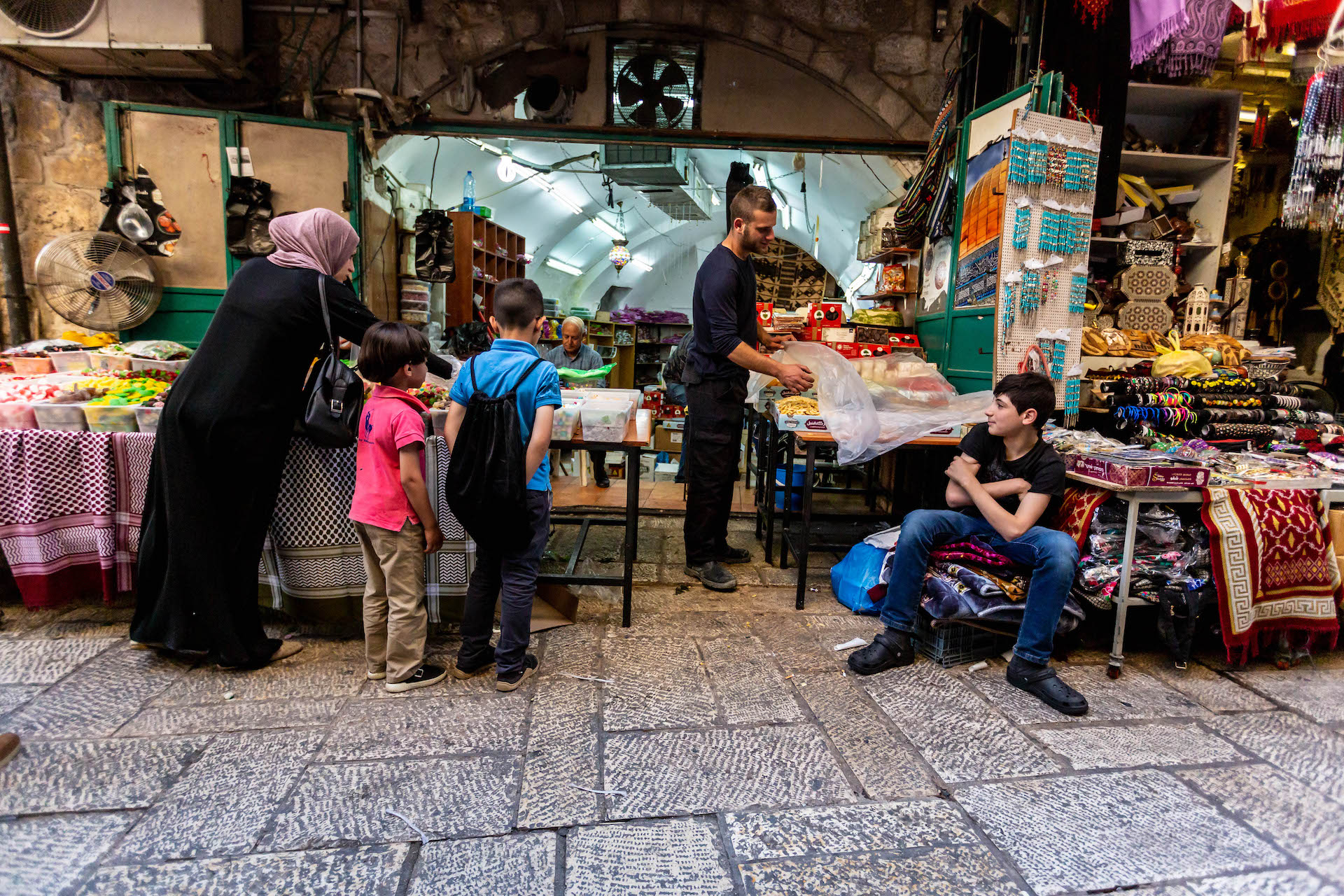
A Muslim mother in Jerusalem chooses candy for her children from bins of multicolored sweets. Muslim children usually begin keeping the Ramadan fast at puberty.
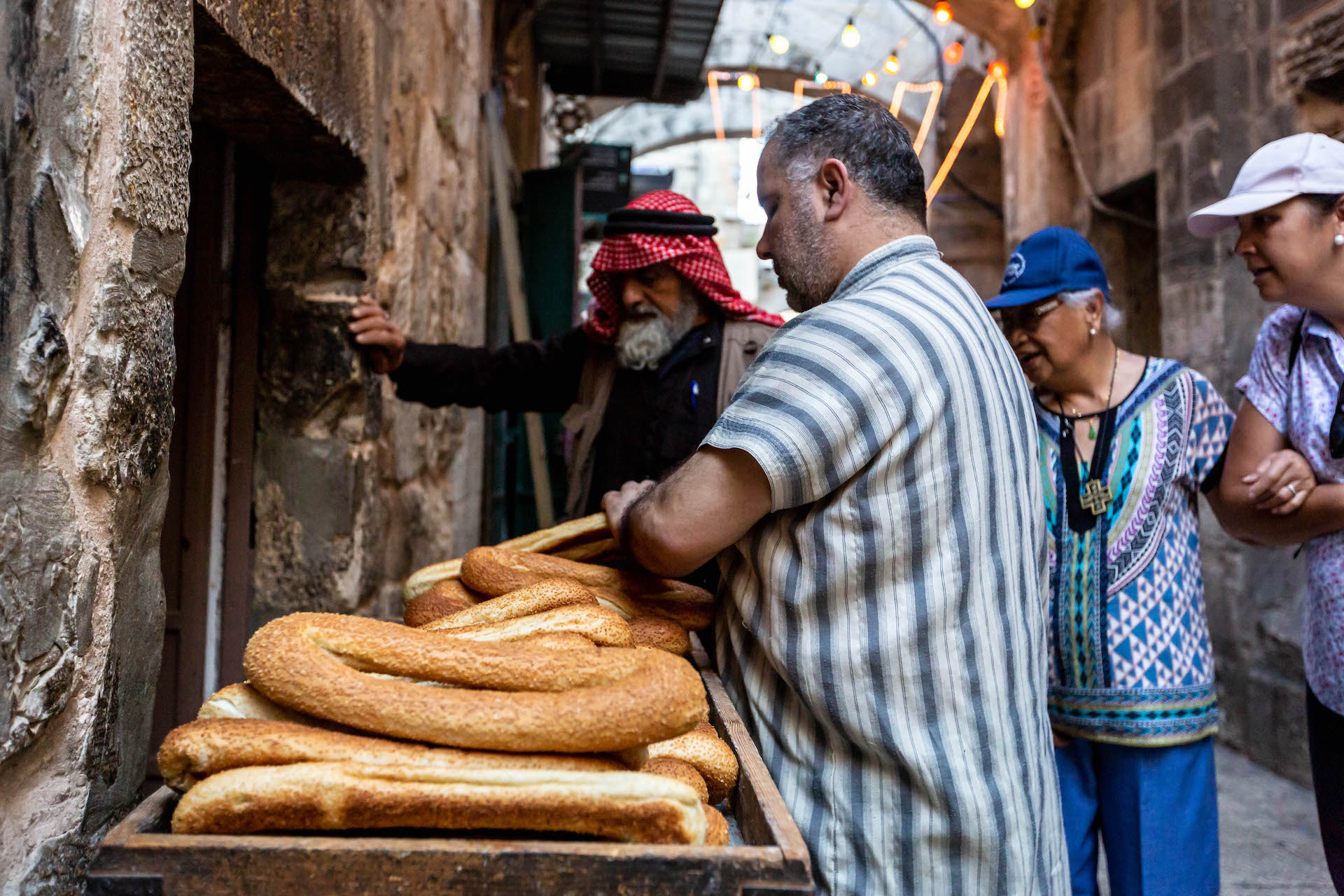
A baker prepares fresh bread in the Muslim Quarter of Jerusalem as tourists and locals alike stand by. Tourists often wander through Old City Jerusalem’s four neighborhoods: the Muslim, Christian, Armenian, and Jewish Quarters.
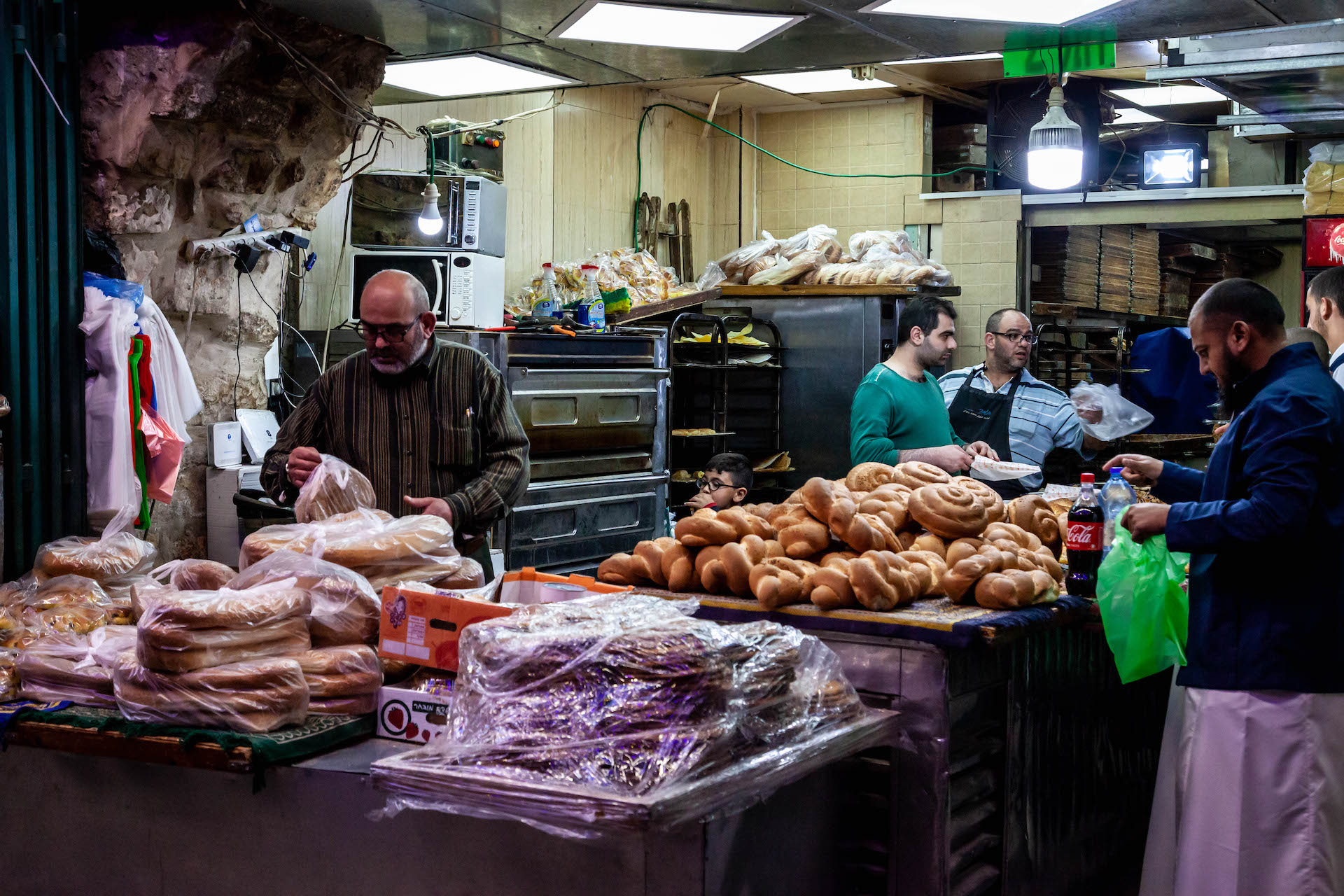
Just prior to sunset, bakeries around Jerusalem bustle with those buying hot bread for the iftar meal.
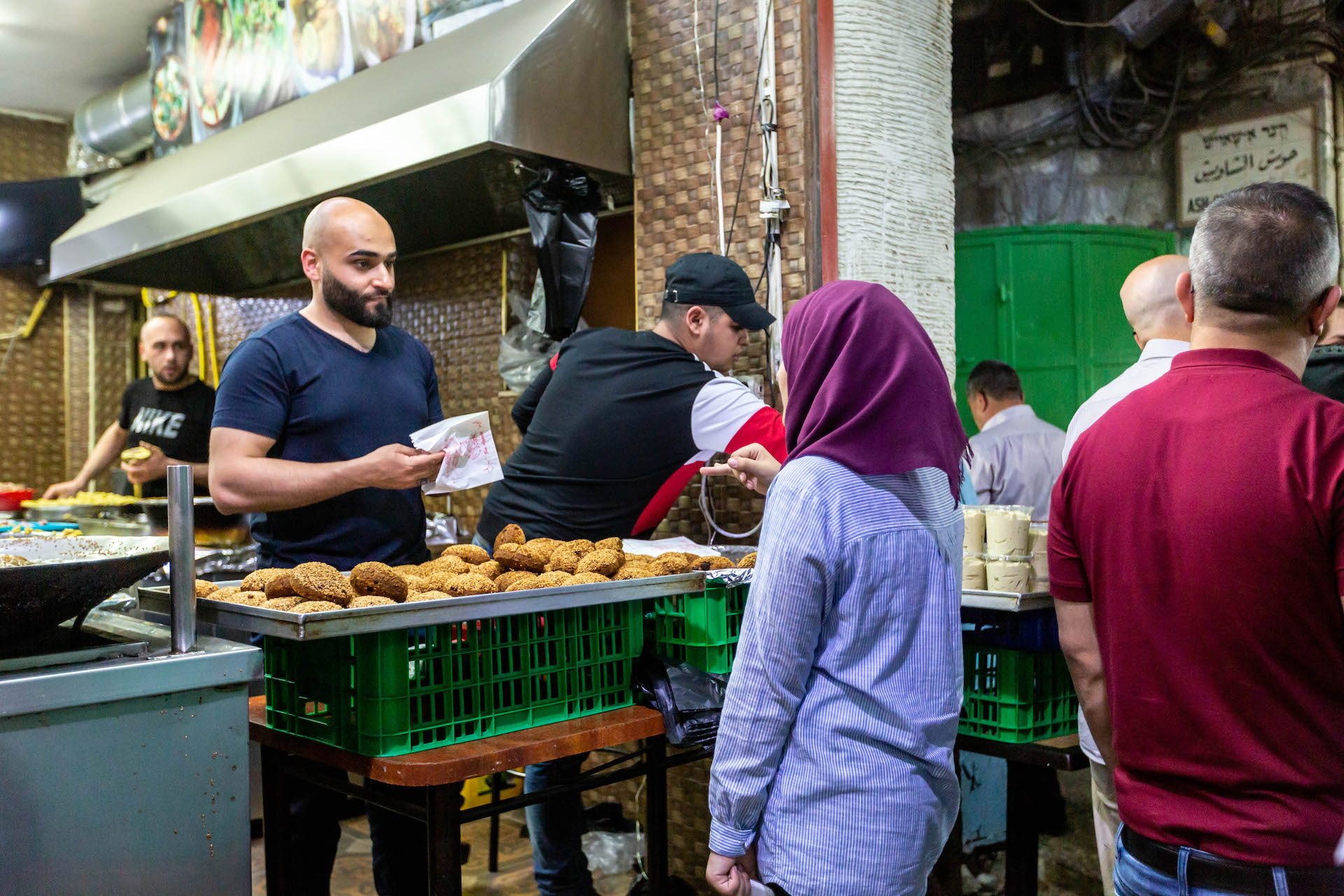
A Muslim woman in Jerusalem purchases food for the evening meal from a local vendor. Hummus and falafel are staples of Israel’s cuisine for all its citizens—Jews, Christians, and Muslims.
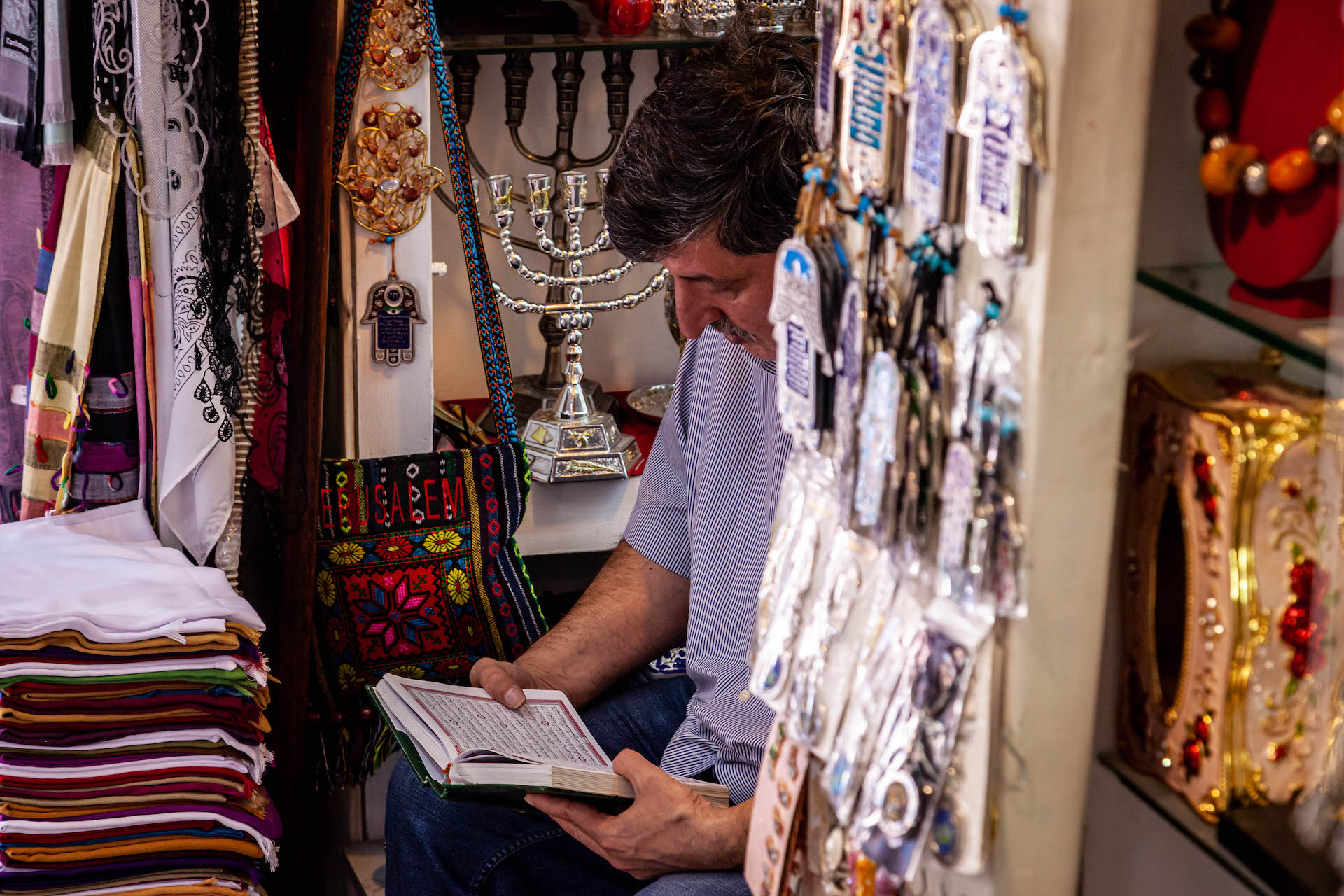
Ramadan is a time of heightened spirituality when Muslims increase their prayers and readings from the Qur’an. A man in the Muslim Quarter of Jerusalem reads during a quiet moment in his shop.
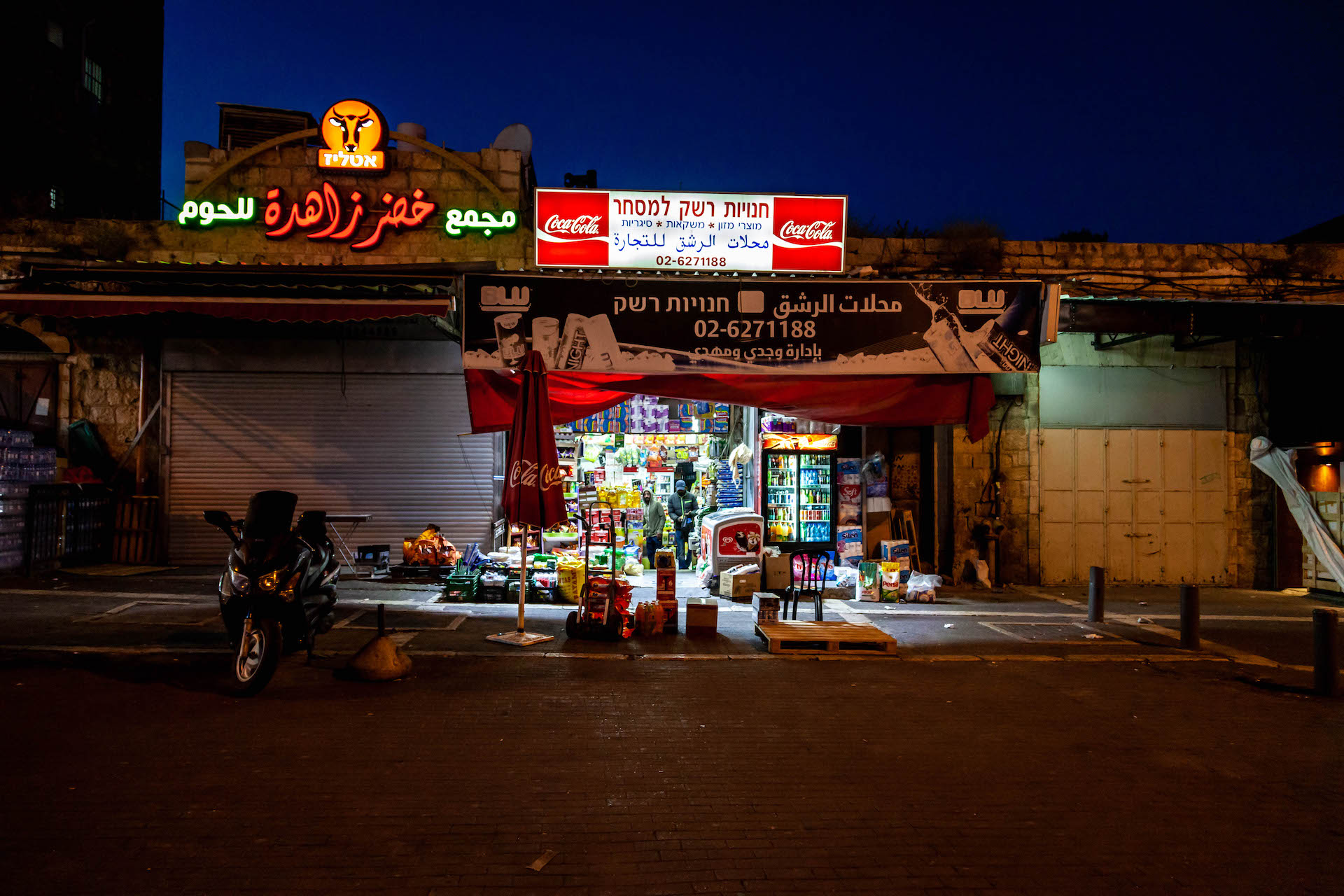
The streets outside of the Damascus Gate in Jerusalem are quiet as many families choose to celebrate the evening meal in the privacy of their own homes.

The city of Hebron in the West Bank is the final resting place of Abraham, Sarah, Isaac, Rebekah, Jacob, and Leah. Here, the Tomb of the Patriarchs is revered by both Jews and Muslims. Both a mosque and a synagogue sit around the site of the ancient tomb mentioned multiple times in the book of Genesis (Gen. 23; 25:9; 49:30–31). Muslim men pray in the sacred mosque pictured above.
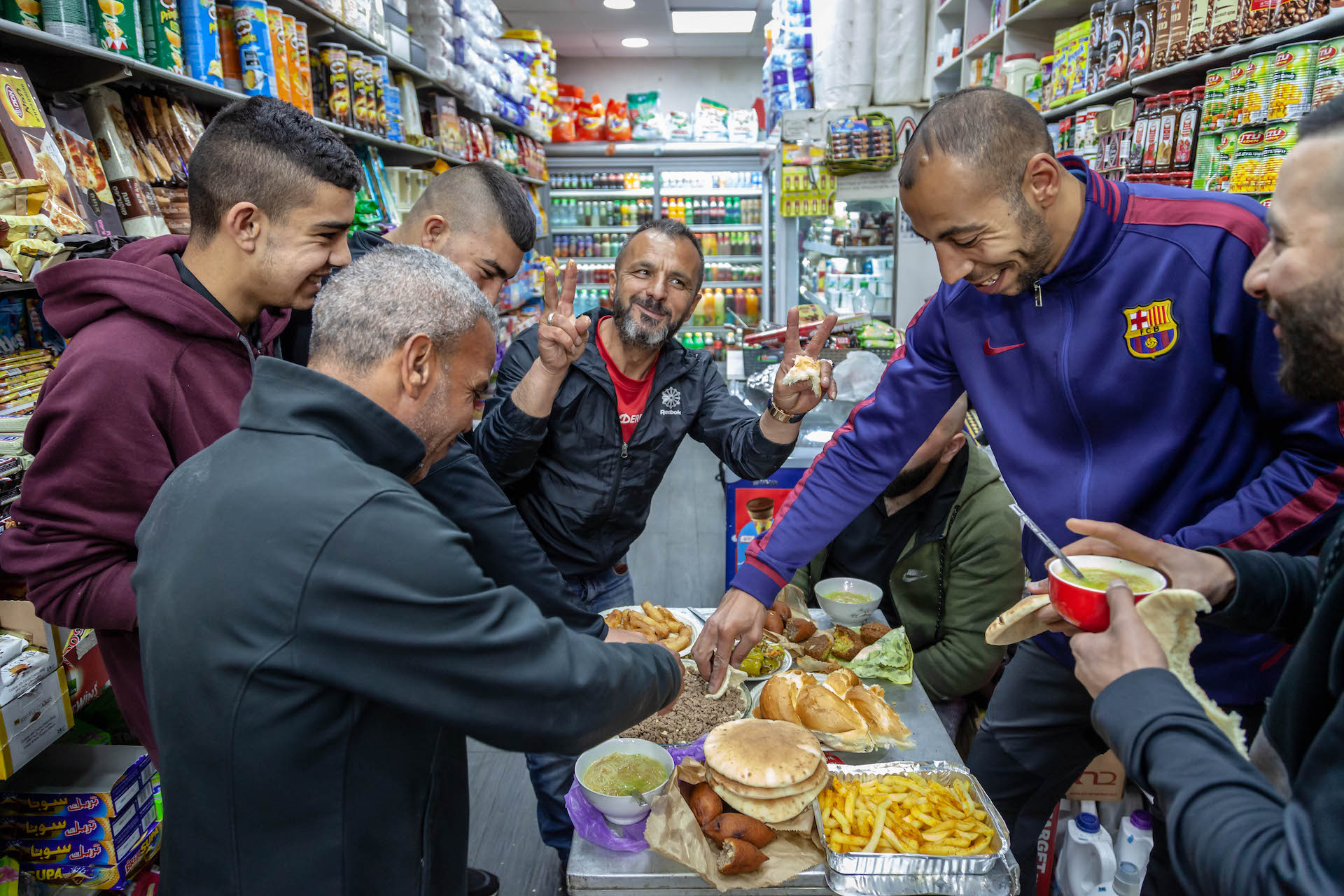
Friends in a small Jerusalem market break their fast together, goofing off as they fill their stomachs.
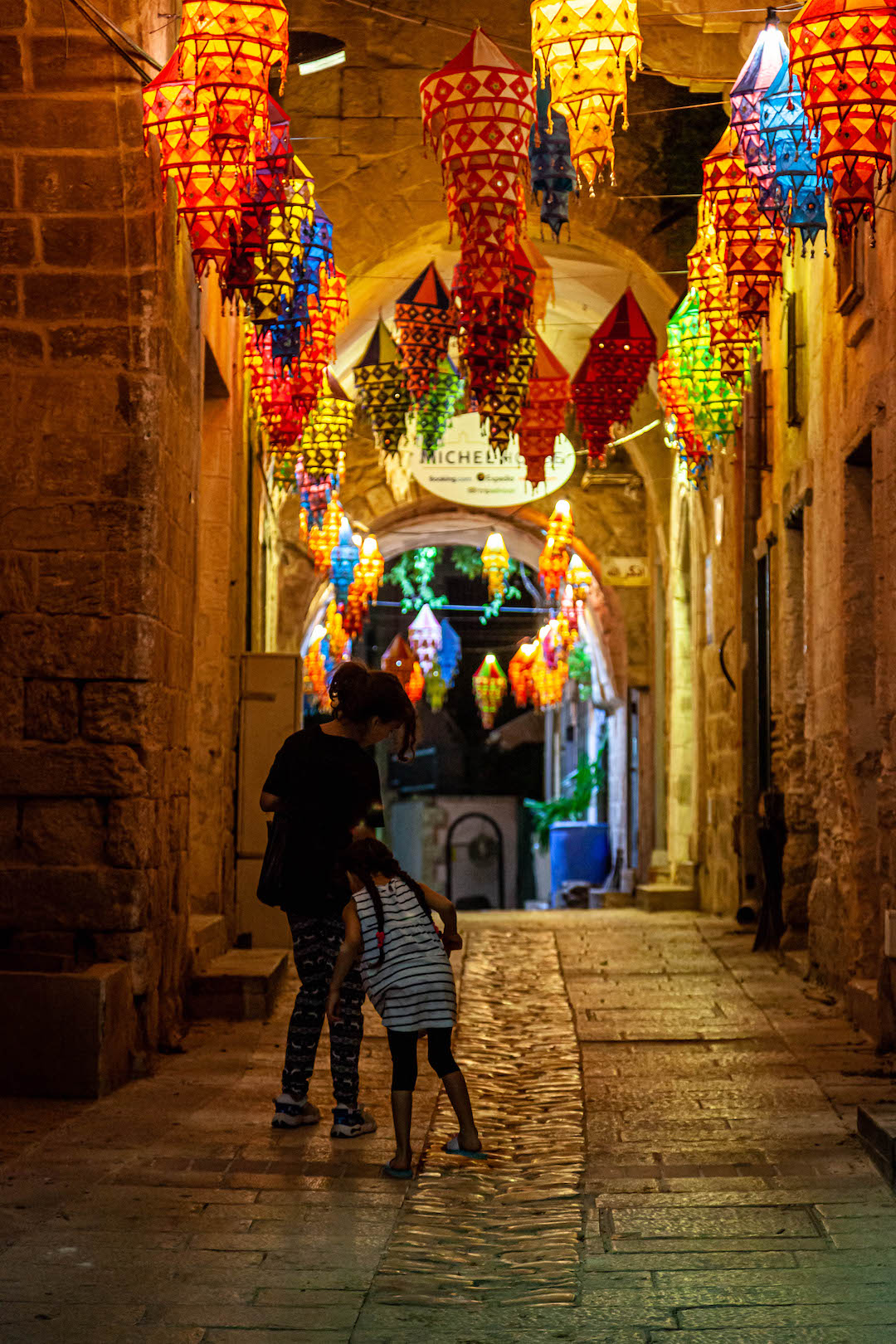
In Nazareth, festive lanterns cast a warm glow on ancient streets near Nazareth’s Old Market and nearby White Mosque.
Ramadan in Israel may be a new concept for you and could stir varying emotions. As you peek into the world of Islam in the Holy Land, let prayer be your first response.
Pray for eyes to see as God sees.
Muslim men and women are created in the image of God. They laugh, love, and cry just like you. They have sinned against a holy God, just like you. They want their sins forgiven, just like you. Jesus of Nazareth suffered and died for the sins of these men and women who now walk on the same land he walked. Will we look on them with the compassion of Christ?
Pray that the gospel will spread among Muslims in Israel.
Israel is an intense place where people hold tightly to their traditions and religions. Even so, God is calling men and women from Islam to become his children. Pray that the gospel will spread rapidly and find its way to those who are seeking truth.
Pray that God will build his church among believers from a Muslim background in Israel.
Muslims in Israel go against strong cultural and family pressures when they believe in Christ for salvation. Pray for those who believe, that they will grow and be established in Christ. Pray for the growth of the Muslim-background church in Israel.
Madeline Arthington is a writer who serves with IMB in Central Asia.
Patrick Royals is a media specialist serving with IMB in Europe. He took all the photos used in this article.

